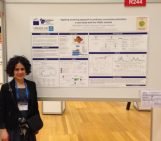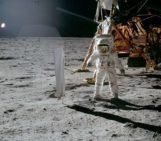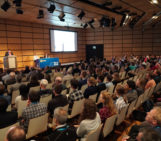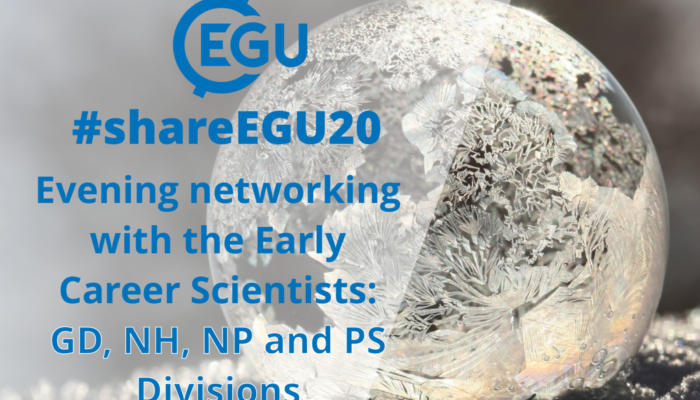
From Monday to Thursday during the week of #shareEGU20, the Early Career Scientists in our various Divisions are going to host a series of evening networking events. Find out more by clicking on the ‘Networking’ session search in the EGU Programme. If you are wondering if these events are for you, check out the Division description by the hosts included below. Every day this week we will be featuring the Divisions who are hosting events, and also adding a description of the other Divisions – in case you come across them in the week and wonder what they are all about.
Tuesday 5 May 2020 19:00 CEST: Networking and Feedback with the ECS of the GD division – REGISTER NOW!
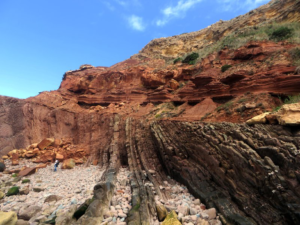
Photo by André Cortesão (from imaggeo)
Studies related to the Geodynamics Division include all aspects of geodynamic processes in the lithosphere, mantle, and core. They encompass different approaches, including observations, imaging, theory, modelling (numerical simulations and laboratory experiments), and interpretation. Examples include the dynamics of subduction, mid-ocean-ridge processes, vertical and horizontal plate movements driving mountain building and basin formation, lithosphere dynamics, mantle convection, and core dynamics.
Tuesday 5 May 2020 20:00 CEST: Networking with the ECS of the NH division – REGISTER NOW!
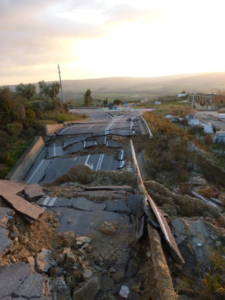
Photo by Emanuele Intrieri (from imaggeo)
The Natural Hazards (NH) Division of the EGU covers all the geological and geophysical processes that can be hazardous and can produce damage to the environment and to the society.” These words are the opening of the NH Division homepage and capture very well the multidisciplinary essence of our Division. From Volcano to Earthquake, from Hydro-Meteorological to Landslide, from Wildfire to Sea & Ocean hazards passing through Biological and Environmental Hazards. The hazards relation to Remote Sensing and Society, and concluding with Multihazards, this Division brings together many diverse disciplines. Within it, a group of ECS aims a fostering network, multidisciplinary collaboration and science communication. Follow our activities during the #shareEGU20 and attend the NH Division ECS Virtual Reception on Tuesday, 5 May, at h 20:00 CEST. To attend the reception, please register here.
Tuesday 5 May 2020 19:00 CEST: Networking with the ECS of the NP division – REGISTER NOW!
Nonlinear Processes in Geoscience (NP)
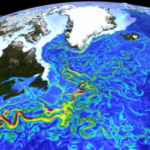
Photo from imaggeo.
Although the geosciences are rife with nonlinearity, the NP division is focused on a series of nonlinear paradigms whose applications cut across the “geospheres”, disciplines. Examples include deterministic chaos, tipping points, nonlinear waves, similarity across scales (scaling, scale invariance, fractals, multifractals), network theory, stochasticity, predictability and its limits, pattern formation, self-organized criticality, extreme events. NP geoscience is highly multidisciplinary, it plays an important role in fundamental geoscience. Applications of NP science include new methodologies, new modelling and new data analysis techniques.
Tuesday 5 May 2020 20:00 CEST: Networking with the ECS of the PS division – REGISTER NOW!
Planetary and Solar System Sciences (PS)
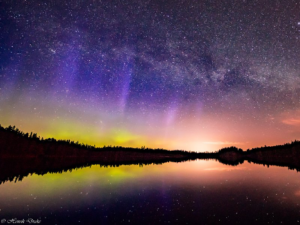
Photo by Henrik Drake (from imaggeo).
The aim of the Planetary & Solar System Sciences (PS) Division is the promotion of all fields of planetary sciences, ground-based and space mission exploration of the solar system and beyond, and related models. PS covers papers on both fundamental and applied topics regarding the exploration of the solar system. The division, devoted to science applications in space, hosts interdisciplinary contributions on the origins and the evolution of the solar system and the exoplanetary systems, as well as ideas for future exploration while largely contributing to outreach and educational activities for all audiences.
Due to the ongoing coronavirus outbreak, EGU has made the decision to cancel this year’s physical General Assembly in Vienna and instead offer a partial alternative meeting online, called #shareEGU20. Over the next few weeks in the run up to #shareEGU20, which will be held from the 4 – 8 May 2020, we will be posting regular updates and information about how to get involved, what EGU can offer during this week and how to find each other. We know that there will be many, many questions that people have, and we are learning how to do this right along with you, so please send us your questions over social media or by emailing egu2020@copernicus.org or info@egu.eu. We’re looking forward to sharing EGU with you, online!

